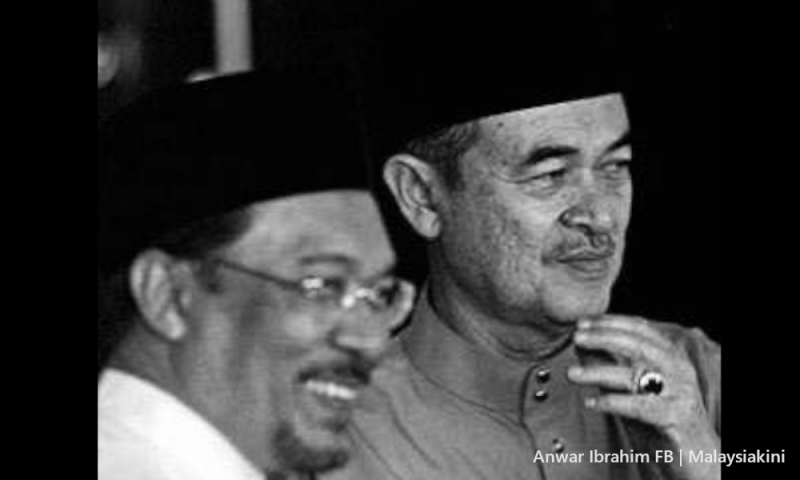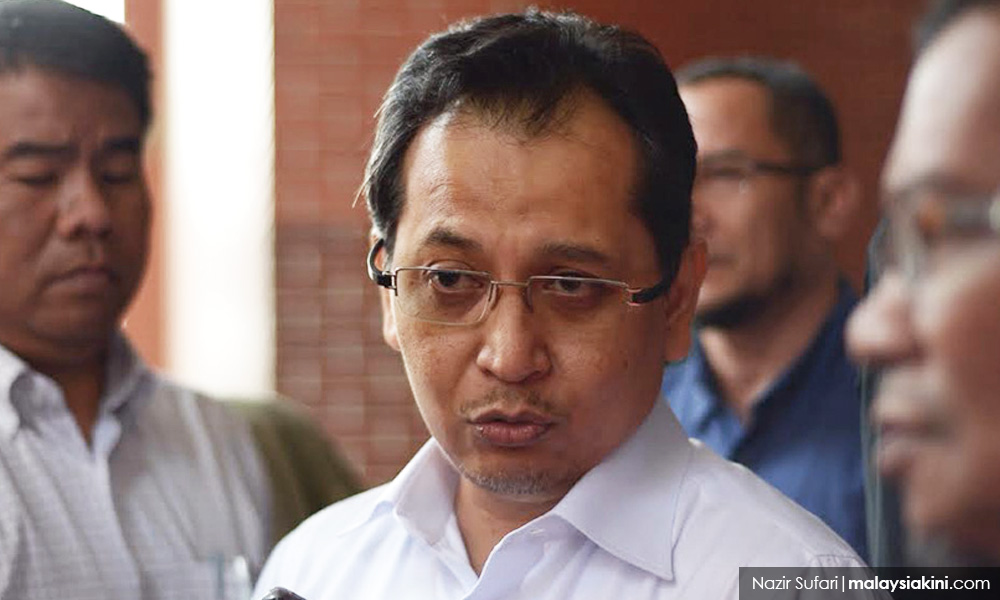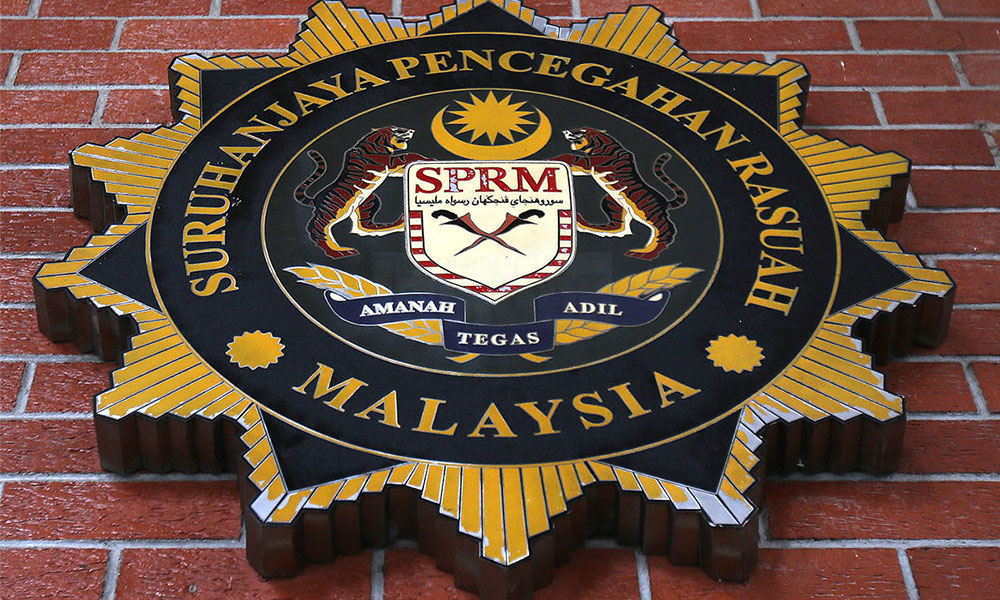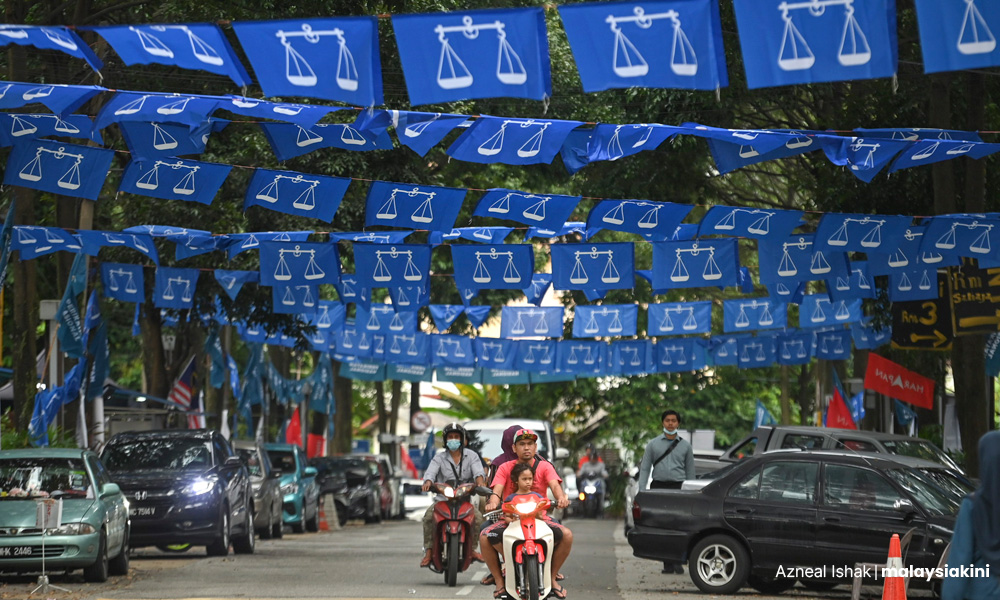

How KJ and Pak Lah tried to save Anwar’s life
Published: Apr 15, 2025 3:19 PM
Updated: 5:50 PM
Summary
- In a 2008 interview, Ezam Md Noor recalls what transpired four years earlier when Anwar Ibrahim was suffering from spinal stenosis.
- The former Anwar lieutenant said as Anwar’s health deteriorated, PKR leaders reached out to Abdullah AHmad Badawi for help.
In a 2008 interview with Malaysiakini, a now-estranged former lieutenant of Anwar Ibrahim revealed what transpired behind the scenes during Abdullah Ahmad Badawi's tenure as prime minister, particularly regarding the PKR president’s deteriorating health four years earlier.
Addressing his 2004 meetings with Umno leaders and his relationship with Khairy Jamaluddin, Ezam Md Nor explained that he viewed the attempts to lure him back to Umno as an opportunity to negotiate Anwar’s release from prison - or at the very least, to secure permission for him to seek medical treatment overseas.
“At that time, Anwar was in critical condition. After discussing with other party members, they felt that priority must be given to saving Anwar’s life.
“So, we decided to initiate discussions with Umno leaders.
“After the 2004 election, Anwar’s health got worse. BN (under Abdullah) won big and (Anwar’s wife) Dr Wan Azizah (Wan Ismail) then asked me to work on getting Anwar out (of prison) and to open negotiations,” he said, adding that despite numerous attempts, the message initially did not reach Abdullah.
Anwar, who was serving a six-year prison sentence, had been suffering from spinal stenosis - a narrowing of the gaps in the spinal column that places extreme pressure on the spinal cord or nerve roots.

Ezam Md Nor
After the Federal Court reversed his sodomy conviction in September 2004, he underwent surgery in Munich, Germany.
Ezam recounted that a foreign journalist advised him the most effective way to reach Abdullah was through his son-in-law, Khairy Jamaluddin - then his adviser and a frequent target of political rivals.
“This was about May or June 2004. So, I tried to find Khairy through contacts in London and in the end, I got it and I met him. That’s where my relationship with Khairy started.
“I told him about our concerns for Anwar’s health and to pass this message to the PM. After two meetings, he arranged a meeting between Wan Azizah and Abdullah at the PM’s office.
“I don’t know the details as I did not go in but it was basically about Anwar’s health. The first concern was to put Anwar permanently in a hospital because at that time he was being transferred in and out of prison,” he added.
Ezam said Abdullah then called the health minister and ordered that Anwar be taken out of prison immediately.
Ezam recounted that a foreign journalist advised him the most effective way to reach Abdullah was through his son-in-law, Khairy Jamaluddin - then his adviser and a frequent target of political rivals.
“This was about May or June 2004. So, I tried to find Khairy through contacts in London and in the end, I got it and I met him. That’s where my relationship with Khairy started.
“I told him about our concerns for Anwar’s health and to pass this message to the PM. After two meetings, he arranged a meeting between Wan Azizah and Abdullah at the PM’s office.
“I don’t know the details as I did not go in but it was basically about Anwar’s health. The first concern was to put Anwar permanently in a hospital because at that time he was being transferred in and out of prison,” he added.
Ezam said Abdullah then called the health minister and ordered that Anwar be taken out of prison immediately.

Khairy Jamaluddin
“We also asked for Anwar to receive overseas treatment but he was non-committal about that. Lastly, we asked Abdullah not to interfere with Anwar’s trial unlike (Dr) Mahathir (Mohamad). He gave his commitment not to interfere with the trial,” he added.
Treatment abroad
Ezam continued to meet Khairy in hopes of finalising an agreement for Anwar to receive treatment abroad.
“Khairy tried and there was an agreement to send Anwar for treatment in Singapore instead of Germany. At first, Wan Azizah did not agree, but when I met Anwar, he said 'okay'.
“According to Khairy, Abdullah agreed to this but the attorney-general challenged that it was against the provisions of the laws. So, it did not materialise.
“After a while, the court fixed a date for the appeal, so we ceased discussions until the judgment. As it turned out, Anwar was released, so as a courtesy I told Khairy about it and he asked if there was anything else he could do.
“I asked Anwar and he said he wanted his passport back. So, I told Khairy, and that night alone, Khairy came over to Anwar’s house with the passport. So that was the incident when Khairy visited Anwar’s house,” he added.
Not about cutting deals
Ezam stressed that the entire process was centered around saving Anwar’s life, not striking any deals.
He was also disappointed that Anwar did not come to his defence when people linked him to Khairy.
“In fact, I rejected all offers and remained steadfast to get Anwar out. After Anwar was free, there were no more dealings.
“I did not meet Khairy again. In fact, he was afraid to see me because he was suffering from fierce criticisms at that time. We ceased our relationship,” he said.
Pak Lah’s war on graft
Meanwhile, in a statement this afternoon, Ezam paid tribute to Abdullah’s crusade against corruption.
“Although he did not speak much or use grand rhetoric about it, the fact remains that during his era, the biggest structural change occurred - from the Anti-Corruption Agency (ACA) to the Malaysian Anti-Corruption Commission (MACC).
“I was personally affected by this change. I decided to rejoin Umno and the government as soon as the MACC Act was passed in Parliament, replacing the ACA Act in 2008.
“After being dismissed from the party and government for 10 years, serving two prison terms including one under the Official Secrets Act (OSA) related to exposing corruption documents, I made a decision I never expected - to rejoin the party that had expelled and imprisoned me.
“It was because of Pak Lah’s commitment and honesty in fighting corruption,” he added.
Treatment abroad
Ezam continued to meet Khairy in hopes of finalising an agreement for Anwar to receive treatment abroad.
“Khairy tried and there was an agreement to send Anwar for treatment in Singapore instead of Germany. At first, Wan Azizah did not agree, but when I met Anwar, he said 'okay'.
“According to Khairy, Abdullah agreed to this but the attorney-general challenged that it was against the provisions of the laws. So, it did not materialise.
“After a while, the court fixed a date for the appeal, so we ceased discussions until the judgment. As it turned out, Anwar was released, so as a courtesy I told Khairy about it and he asked if there was anything else he could do.
“I asked Anwar and he said he wanted his passport back. So, I told Khairy, and that night alone, Khairy came over to Anwar’s house with the passport. So that was the incident when Khairy visited Anwar’s house,” he added.
Not about cutting deals
Ezam stressed that the entire process was centered around saving Anwar’s life, not striking any deals.
He was also disappointed that Anwar did not come to his defence when people linked him to Khairy.
“In fact, I rejected all offers and remained steadfast to get Anwar out. After Anwar was free, there were no more dealings.
“I did not meet Khairy again. In fact, he was afraid to see me because he was suffering from fierce criticisms at that time. We ceased our relationship,” he said.
Pak Lah’s war on graft
Meanwhile, in a statement this afternoon, Ezam paid tribute to Abdullah’s crusade against corruption.
“Although he did not speak much or use grand rhetoric about it, the fact remains that during his era, the biggest structural change occurred - from the Anti-Corruption Agency (ACA) to the Malaysian Anti-Corruption Commission (MACC).
“I was personally affected by this change. I decided to rejoin Umno and the government as soon as the MACC Act was passed in Parliament, replacing the ACA Act in 2008.
“After being dismissed from the party and government for 10 years, serving two prison terms including one under the Official Secrets Act (OSA) related to exposing corruption documents, I made a decision I never expected - to rejoin the party that had expelled and imprisoned me.
“It was because of Pak Lah’s commitment and honesty in fighting corruption,” he added.

Ezam recalled that when he was leading Gerak, an anti-corruption NGO he founded after leaving PKR, Abdullah’s political secretary visited him saying that the prime minister wanted help with the major reform from ACA to MACC.
“I was shocked because just a few months before, I had been at the forefront criticising the government, especially ACA, by exposing several documents related to the ACA leadership at the time.
“It turns out that Pak Lah had been closely observing these developments and believed that reform was indeed necessary. To me, this is Pak Lah’s greatest contribution to this nation,” he added.
After securing the largest-ever mandate in 2004, Abdullah found himself on the opposite end of the political spectrum just four years later, when BN experienced one of its worst electoral performances since Malaysia’s independence.

Although BN retained control of the federal government, it lost its two-thirds majority in Parliament and ceded control of five states - including Selangor and Penang.
This ultimately led to Abdullah stepping down, paving the way for Najib Abdul Razak to succeed him in 2009.
No comments:
Post a Comment